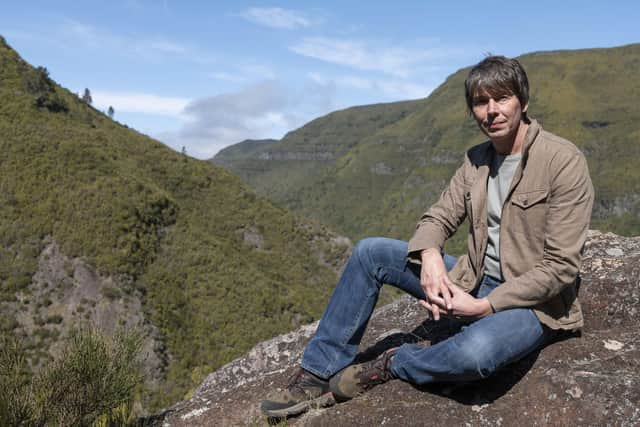Brian Cox takes us on a trip to the Universe
and live on Freeview channel 276
Oscar Wilde famously quipped: “We are all in the gutter, but some of us are looking at the stars”, and anyone who saw Star Trek actor William Shatner’s emotional response after spending a few minutes hovering above the Earth in Jeff Bezos’ Blue Yonder rocket will understand the power of these astonishing celestial bodies.
Did you know, for example, that our nearest star is the Sun, and that it’s actually a dwarf star? Maybe you did, but how about this collection of factoids: every star you can see in the night sky is bigger than our Sun, they are mostly made of hydrogen and helium, and no matter what your eyes (or the nursery rhyme) tell you, they definitely don’t twinkle.
Advertisement
Hide AdAdvertisement
Hide AdWho better to learn everything worth knowing about stars than physicist Professor Brian Cox, as he begins an epic exploration of the cosmos with a hymn to the great luminous bodies that bring light and warmth to the universe.


He also follows Nasa’s Parker Solar probe, the latest spacecraft that will journey to the Sun and is the first that has been specifically designed to experience its brutal atmosphere up close.
It’s among several missions that have revealed the secrets of all the stars, allowing us to chart their history in the universe.
It is estimated that there are two hundred trillion stars in the universe, each playing their part in an epic story of creation – a great saga that stretches from the dawn of time, with the arrival of the first star, through diverse generations until the arrival of our own star, the Sun, and a civilisation that has grown up in its light.
Advertisement
Hide AdAdvertisement
Hide AdUniverse is the natural companion to Professor Cox’s Human Universe, which aired earlier this year and explored our origins, place and destiny in the universe, and will come as a comfort to anyone who can’t bag tickets to his live show Horizons.
Cox has become a soft-spoken, dry-witted poster boy for the scientific community, appearing in everything from QI and Postman Pat (we’re not kidding) to presenting CBeebies Bedtime Story, though possibly not making quite as much of a fuss among mums as actor Tom Hardy.
Aside from his forays into entertainment, Cox has also built up an impressive CV exploring the scientific world and the universe around us.
His TV credits include the Horizon series, helped celebrate Doctor Who’s 50th anniversary by exploring the issue of time travel in The Science of Doctor Who, provided technical advice for Danny Boyle’s science fiction flick Sunshine, and fronted the BBC series The Planets.
Advertisement
Hide AdAdvertisement
Hide AdInterestingly, his role in the US version was taken by Star Trek actor (and definitely not a physicist) Zachary Quinto.
For the past 12 years, Cox has also been entertaining BBC radio listeners, alongside comedian Robin Ince with the brilliant Infinite Monkey Cage, while another regular gig returns him again and again to the subject of astral bodies, Stargazing Live, which he co-hosts with Dara O Briain.
All of this and Cox still manages to hold down a day job as professor of particle physics in the School of Physics and Astronomy at the University of Manchester, which means we’re in very capable scientific hands.
Things can’t get any better when you’re in the company of the former D:Ream keyboardist.
Editor’s Message:
Advertisement
Hide AdAdvertisement
Hide AdThank you for reading this article. We’re more reliant on your support than ever as the shift in consumer habits brought about by Coronavirus impacts our advertisers.
Please consider purchasing a copy of the paper. You can also support trusted, fact-checked journalism by taking out a digital subscription of the News Letter.